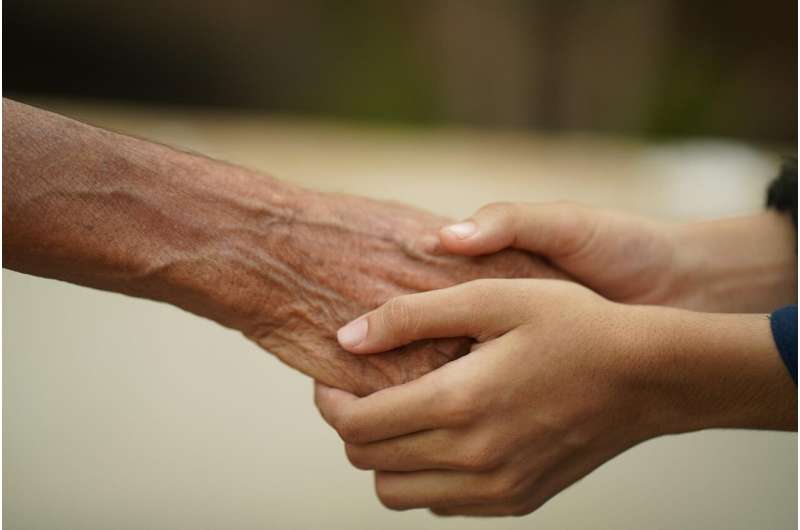Older multicultural Australians struggle with COVID-19 information

Migrants, refugees and Australians born with culturally and linguistically diverse (CALD) backgrounds may have difficulty keeping up with constant changes in COVID-19 public health alerts, a new study has found.
Failure to engage and communicate clearly with individual members of CALD communities can put people's protective health behavior at risk, according to new Australian research funded by Flinders University.
"Informing particularly older CALD adults about protections and precaution-taking, including mask wearing, vaccinations and travel and quarantine restrictions, can be both frightening, stressful, increase their isolation in case of cross-infection, and even prove life-threatening," says Dr. Mohammad Hamiduzzaman, a researcher in aged care health services.
"This South Australian study gives direction to policy-makers and public health officials in compiling CALD-appropriate programs and materials to directly target these communities," researchers say in an article in the Journal of Multidisciplinary Healthcare.
About one-quarter of Australians are born overseas, 46% have a parent born overseas and 20% speak a language other than English in their own home. About 24% of people living alone are older Australians and of those about three-quarters are women.
The study involved an analysis between 2020 and 2021 of online responses from 155 CALD adults aged over 60 across a range of multicultural communities in SA.
"The effects of the pandemic and associated health and quarantine protocols was four-fold," says co-author Flinders University Associate Professor Noore Siddiquee.
"This included fear of infection due to global and national circumstances, access and utilization of health and social services, livelihood (work) and income pressures, and stress and isolation," says Associate Professor Noore Siddequee.
"It was clear that living in a multicultural country during the pandemic is a challenge, especially for the oldest group and females, who mostly rely on their family members and own community people for emotional care."
The study also reflects on global issues including ageism, racism, the media's influence, levels of community health literacy, health status and service access equity.
Despite the relative small sample size, the study argues that it appears CALD populations were "somewhat overlooked in the provision of information that can help individuals make reliable decisions about their protective health behavior."
"Failure to engage effectively with the CALD community not only places individual members of that community at risk, but also places the entire CALD community at risk because of misunderstanding and non-compliance," researchers say.
"It is imperative to put in place strategies that address the specific needs of all sections of the community and to provide advice in a context, format and language that is readily understood."
The article, "Risk Perception and Health Precautions Towards COVID-19 Among Older Culturally and Linguistically Diverse Adults in South Australia: A Cross-Sectional Survey," (2022) by Mohammad Hamiduzzaman, Noore Siddiquee, Helen McLaren, Md Ismail Tareque and Anthony Smith has been published in the Journal of Multidisciplinary Healthcare.
More information: Mohammad Hamiduzzaman et al, Risk Perception and Health Precautions Towards COVID-19 Among Older Culturally and Linguistically Diverse Adults in South Australia: A Cross-Sectional Survey, Journal of Multidisciplinary Healthcare (2022). DOI: 10.2147/JMDH.S343985



















